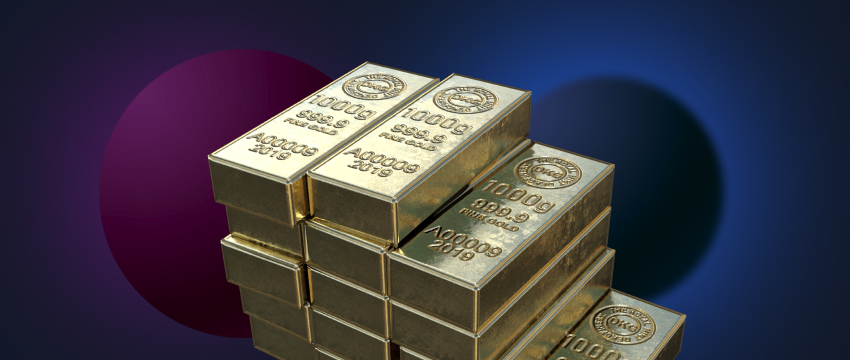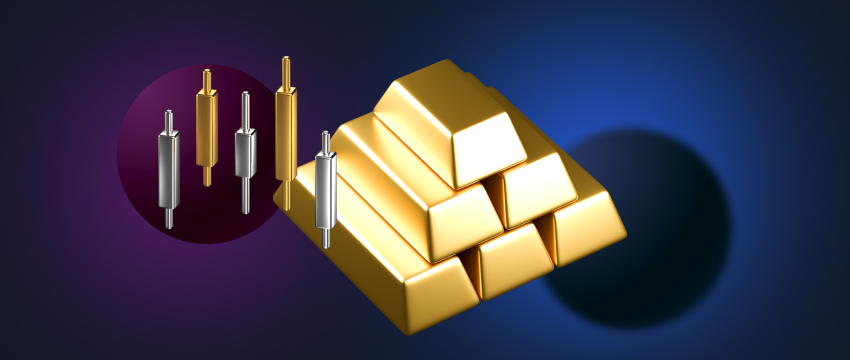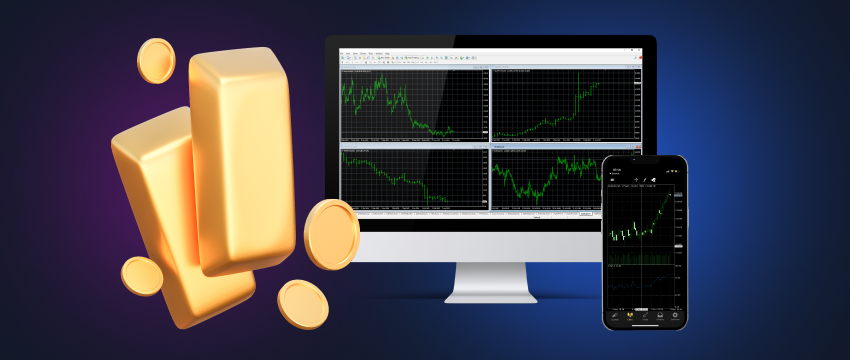Investing in metals provides a way for traders to hedge against inflation, diversify portfolios, access higher liquidity, and use them as a store of value.
Matières premières ou metals trading is incredibly volatile, largely impacted by geopolitical tensions, the health of world economies, and technological advancements.
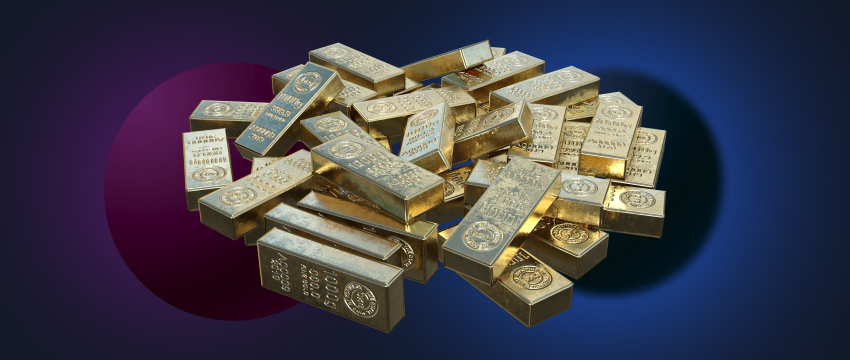
It’s all about the news
As a trader, knowing when or how to trade is largely dependent on market conditions and the global news cycle. Traders must be aware of key releases, particularly when they’ll be made (date) and at what time.
The latter is influenced by the time zones of relevant regions worldwide. Timing is everything in the world of trading, even when investing in metals. This is because a news announcement or economic release could impact metal prices in a matter of minutes (or even seconds).
But what releases do traders need to look out for? Well, some of the most critical are those related to inflation, interest rates, unemployment rates, industrial production and manufacturing, real estate, retail sales, etc. How significant each one is depends on the health of a country’s economy. For this reason, a metals trader needs to pay close attention to what the market is focusing on before executing trades.
So, what tool would best help a trader monitor economic news, releases, and announcements? This would be an economic calendar, much like what T4Trade, a powerful courtier en CFD, offers. T4Trade’s Economic Calendar will help you keep track of current and future financial activity and indicators in real-time. This includes precise dates and times.
The Economic Calendar is also a great tool for planning and structuring your trading plan around the release of economic data and events that are anticipated to have an impact on the market and for making decisions to enter or exit trades.
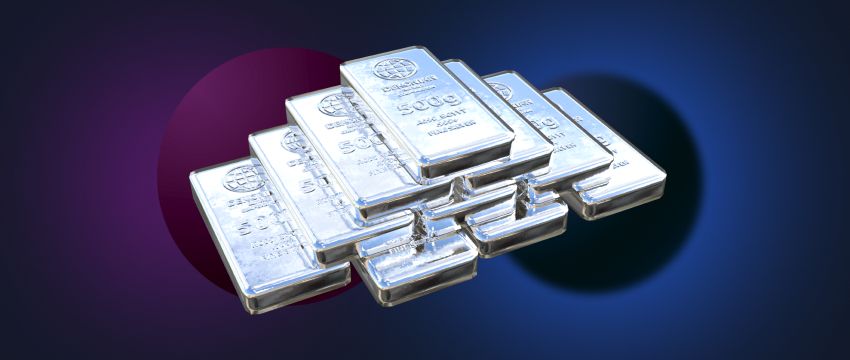
It’s also about your budget
The question of when the right time to trade is is also dependent on a trader’s personal budget. In the context of metal CFD trading, this refers to the amount of capital the trader has or is willing to allocate to a specific position.
In other words, regardless of market conditions, your ability to trade metals is significantly impacted by the funds you have available to use.
A budget also serves several other important purposes:
- A budget can help a trader manage risk more effectively, particularly if the trader engages in CFD metals trading. CFD trading can be highly leveraged, which means a trader may potentially lose more money than initially invested. Having a budget ensures you only trade with funds you can afford to lose without affecting your financial stability.
- Having a budget in place can also mitigate trading emotions like fear or greed that oftentimes lead to impulsive or irrational trading decisions. A budget increases the likelihood of you sticking to your trading plan and avoiding making emotional decisions.
- A budget also helps a trader establish definitive trading goals. Knowing how much you have to invest in trading sets the parameters for what you can potentially achieve and how much risk you’re able to take.
- With a budget, you’ll be able to better determine the appropriate position size for each trade, ensuring you don’t put too much capital into a single trade.
- Budgeting enforces discipline in your trading approach. It helps you avoid overtrading or chasing losses, which are common mistakes among inexperienced traders.
When creating a budget for CFD metals trading, consider the following factors:
- Decide how much capital you have at your disposal and the level of risk you’re willing to incur.
- Set clear profit and loss goals.
- Build a risk management plan that includes the implementation of stop-loss and take-profit orders.
- Keep a trading journal and review it regularly to assess whether your budget needs to be adjusted.
A closer look at metal CFDs
Contracts for Difference (CFDs) are very popular in the metals trading space. This is largely because, rather than having to own the underlying asset (the metal), the CFD allows the trader to instead speculate on the direction that the price of that metal will take and then go long (buy) or short (sell). But what is a CFD? Well, it’s an agreement between two parties (a trader and a broker) that allows a trader to predict the price of a metal and then make trading decisions accordingly.
What about leverage?
CFDs are highly leveraged financial instruments and are therefore also considered high-risk investments. Leverage refers to borrowed funds. With it, traders are able to open and handle larger positions than their account balance would typically permit. The risk that this incurs, however, is that while the potential for maximum profits increases, so does the risk of substantial losses if metal prices move in an unfavorable position. For this reason, traders are advised to use leverage very carefully and ensure the use of risk management tools to prevent losing all their money.

Popular Metals in CFD Trading and the Factors Driving Metals Prices
Some of the most popular traded metals via CFDs include gold, silver, platinum, and palladium, amongst others. One must be aware of the factors impacting the price of these metals to determine when a good time is to invest in them. Some of these factors include:
- Political instability in the countries in which the metals are mined. This is particularly relevant for platinum and palladium, which are mined predominantly in Russia and South Africa. The political climate of these regions, as well as cartel activity, may cause mining disruptions, which in turn increase the scarcity of these commodities. This has the potential to significantly increase the prices of these metals.
- Industrial supply and demand are other factors impacting metal prices. Silver, for example, is used across a variety of sectors like telecommunications, renewable energy, and electronics. The automotive industry accounts for approximately 40% of the total demand for platinum. Because of its unique properties, palladium is a major component of catalytic converters and is also used in other applications like jewelry manufacture, electronics, medicine, dentistry, solar energy, and others.
- Gold prices are largely impacted by factors like inflation or the health of a country’s economy or financial infrastructure. If these are considered unstable, the demand for gold may increase as a store of value. This also applies during periods of war or political upheaval, as it can be transported and/or exchanged for food, shelter, transport, etc.
Trader avec T4Trade
CFD traders worldwide seek out T4Trade for the flexible trading experience it offers, fast withdrawals and deposits, flexible leverage, and quick execution. T4Trade also provides its traders with exclusive educational resources to optimize their skills and gain more trading proficiency. This includes webinars, podcasts, videos-on-demand, e-books, blogs, and live TV. A multi-lingual support team is also on hand 24/5 via email, telephone, or live chat to help traders across the globe with any queries they might have.
Additionally, T4Trade offers a variety of metal trading opportunities with CFDs on gold, silver, palladium, or platinum. For one, T4Trade offers a risk-free demo trading account with which you can practice your trading strategies and trade different metals. The MetaTrader 4 online trading platform also offers fast execution and no requotes.
Furthermore, with T4Trade, you can take a short or long position on metal prices and buy and sell CFDs on gold and silver with competitive spreads (from 0.30 pips).
Avertissement : Ce document est fourni à titre informatif et éducatif uniquement et ne doit pas être considéré comme un conseil ou une recommandation en matière d'investissement. T4Trade n'est pas responsable des données fournies par des tiers référencés ou liés par hyperlien dans cette communication.
